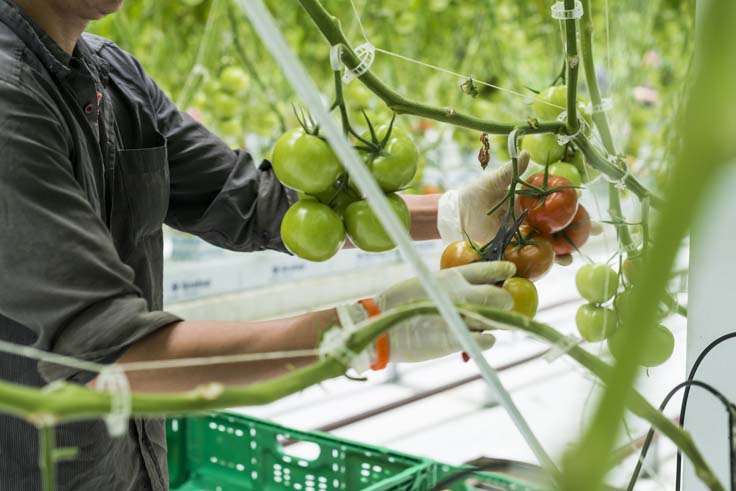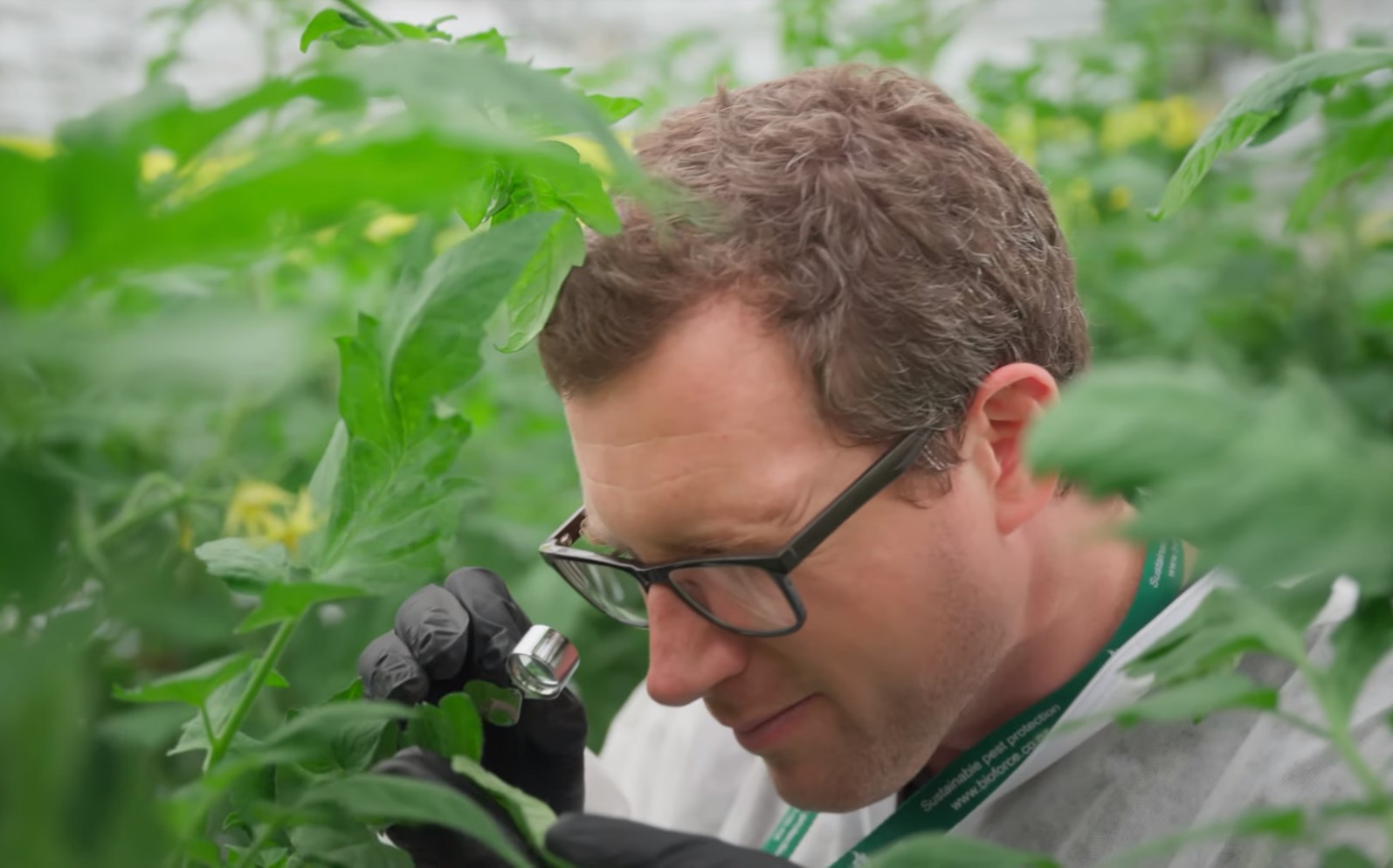New grower resources focusing on control of the main pests in greenhouse tomatoes have formed the basis for a revitalised integrated pest management (IPM) programme for the crop.
The resources have been developed from the A Lighter Touch-Tomatoes NZ project focusing on the use of beneficial insects to help manage greenhouse whitefly, tomato-potato psyllid and other common greenhouse pests as part of an IPM programme.
TomatoesNZ launched the new IPM guide and shared the resources and lessons learned from the project with growers and others in the industry at their mini-conference this month. This guide contains both action cards and a decision tree for the main pests encountered in New Zealand’s greenhouse tomato crops.

The action cards give tips on identification, life cycles, potential control measures, scouting tips and some, what to do’s. Supporting this material is a series of “how to” videos. Links to all of these resources are available here on the TomatoesNZ website.
The IPM guide is a living document and will be updated as the results of ongoing research in both academic and commercial growing sites is completed. Some of the key messages for growers from the project so far include:
- Start planning your use of beneficial insects when you order your seeds.
- Communicate with your nursery about your plan to follow a biological IPM programme, ensuring that their agrichemical plan is compatible.
- Introduce your beneficial insects into your greenhouse when your plants get delivered.
- At this early stage there may not be enough pests to feed your beneficial insects so you might need to use supplementary food.
- You need to look for pests regularly – are there spots in your greenhouse that have a lot? These may need special treatment. Are they getting in through an open door or cracked window? Make changes so that this doesn’t happen in future.
- Some pests are needed to keep the beneficial insects alive, so the aim is not complete elimination but keeping the population of pests at a level that it doesn’t cause economic damage in your crop.
- Talk to your BCA (Biological Control Agents) supplier before you use sprays as some interventions can kill beneficial insects whereas others will be okay.
- Have patience and faith in the natural process of beneficial insects, they won’t take control of the pests overnight. Talk to your crop advisor or beneficial insect supplier if you’re unsure.
More information about this project can also be found on the project page on the A Lighter Touch website.
